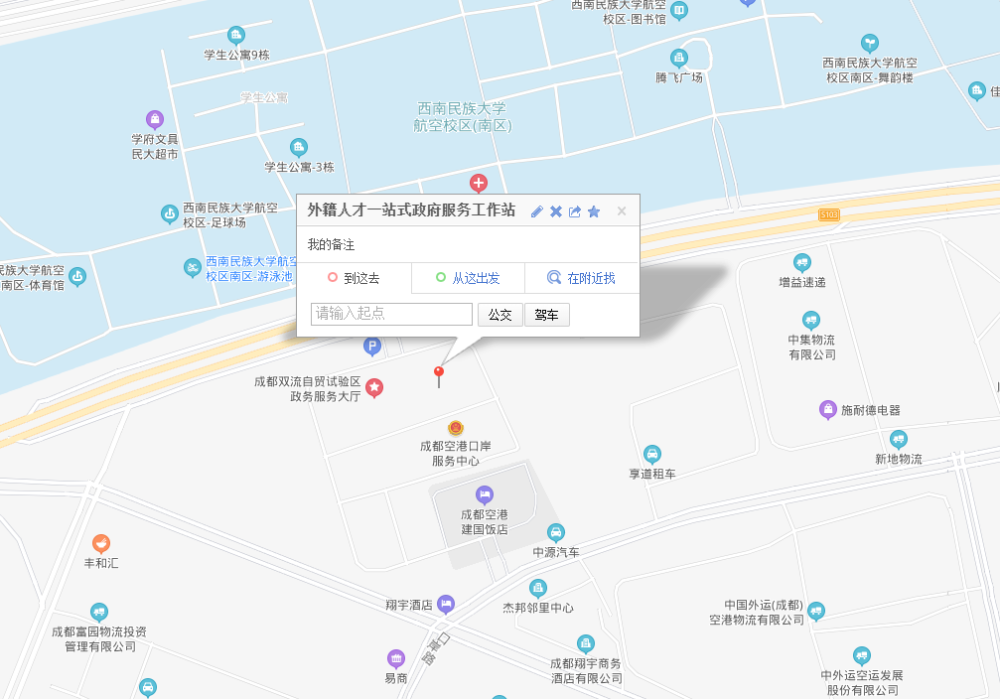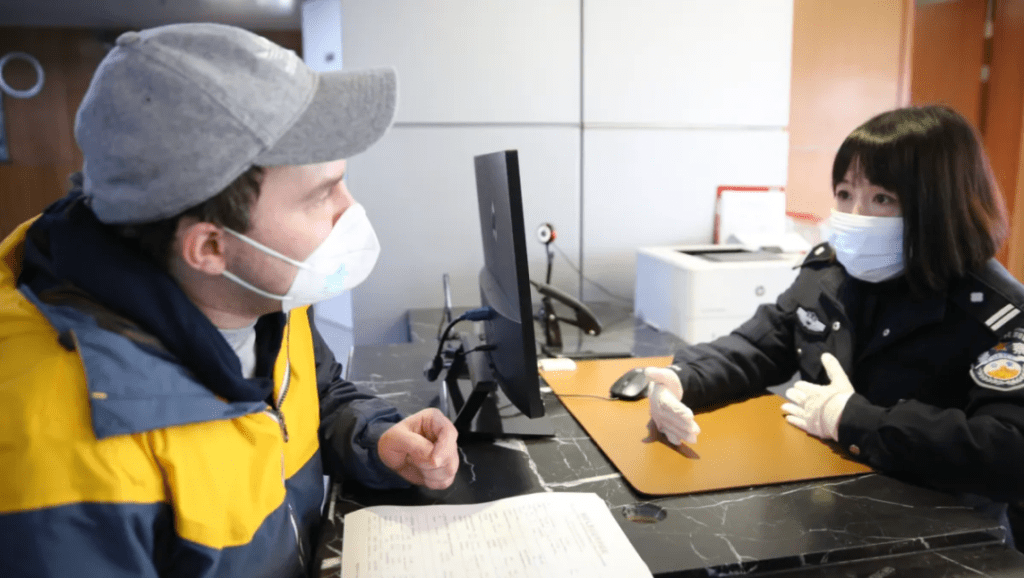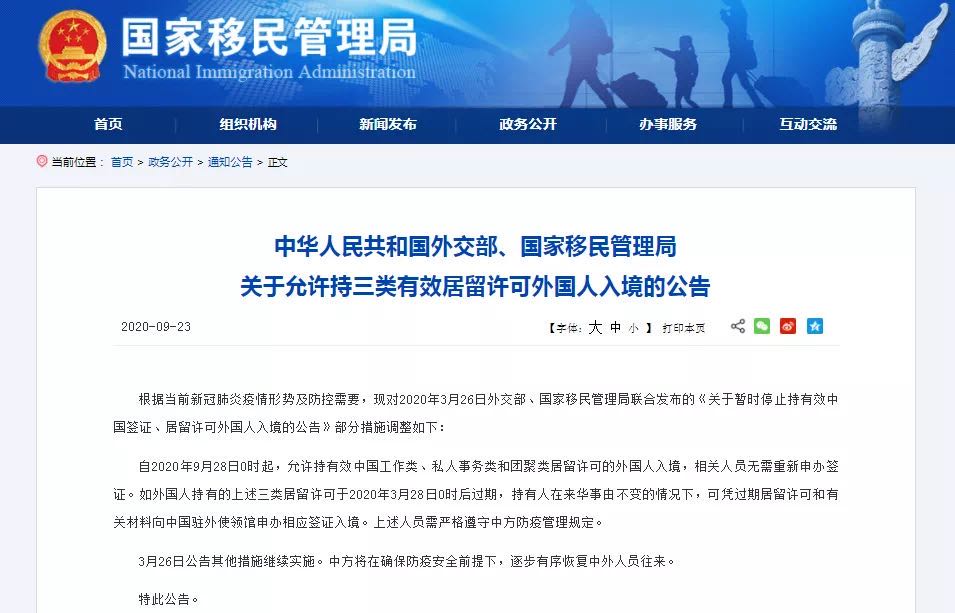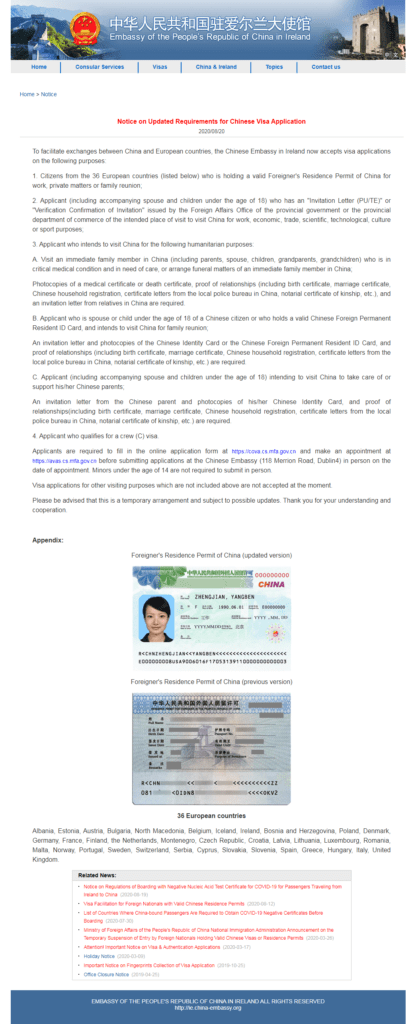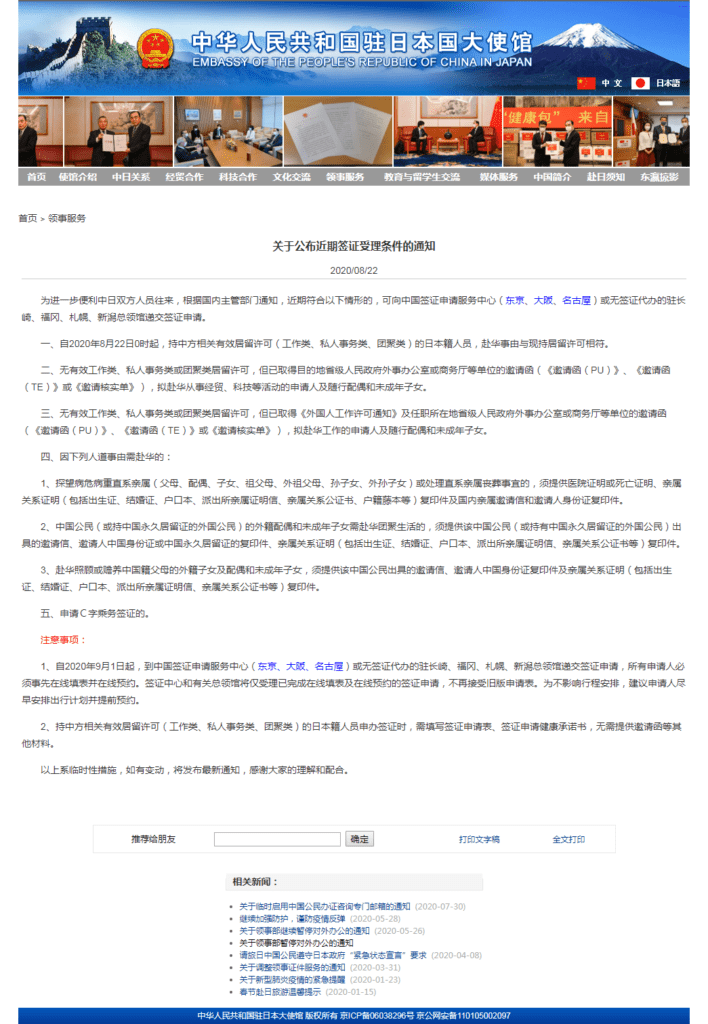This tick list is accurate as of 8th November 2020. Be sure to check at each stage for any updates to the procedures.
1) Get required documents notarised and authenticated
Apply for a criminal background check at from a local police station in Canada. This is an official statement stating that you do not have a criminal record in the country that issued your passport. This document will be valid for the purpose of the China visa application for six months from its issue date.
-Get your degree certificate, TEFL certificate (in some cases required, check with your school) and criminal background check notarized and authenticated.
Process:
1- Get a high quality colour copies of your degree certificate and TEFL certificate notarised by a local public notary or lawyer.
2- Then get your degree certificate, TEFL certificate and criminal background check documents authenticated by the Canadian government. List of locations in Canada where to get documents authenticated.
–Contact us for a more detailed Visa Guide for step by step instructions and support on getting your documents notarised and authenticated
-Confirm with your school what needs doing
-Consider using a visa agent to assist with the process. They can offer free advice or take care of the entire process for a fee. Some suggested visa agents:
ALSC
CIBT Visas
China Visa Canada Service
Hive
Google ‘China visa agents in Canada’ for more options
Medical check certificate
You may be required to provide this, however, you may not. Please check with your school to ask if it is required.
-Book an appointment with your local doctor
-Download and print this form and take it to the doctor’s with you
-You might not have to have the blood test, chest x-ray or ECC tests done, please check with your school
-Make sure the doctor writes ‘healthy’ and signs at the bottom of the form
-Doctor must stamp over your photo on the top right of the form and at the bottom of the form
-The health check certificate is valid for 6 months from date it was issued
2) Get documents legalized by Chinese Visa Center
Once the copy of your degree certificate, TEFL certificate and criminal background check are notarized and certified, the national stamp / seal must then be “authenticated” or “legalized” by the Chinese Visa Center.
–FAQ on legalising documents
–Step by step guide for getting documents legalised by Chinese embassy
-You can submit the documents yourself or have a visa agent or trusted person submit them for you
-When emailing your documents to be notarised use the subject “Urgent documents to be authenticated (your name)”
-You can have the legalized documents posted back to you
3) Email notarized and authenticated documents to your school in China
4) School applies for ‘PU letter’ (invitation letter) and work permit notification letter
-Process can take around 3 weeks
5) Book flight
-Confirm the target arrival date with your school before booking the flight.
-Make sure you book a flight that is approved to fly to China. Some websites list flights even though they are not approved to fly to China and are therefore likely to be cancelled.
-Here is a list of approved flights to China as of 20 Oct 2020, be sure to check for an updated list of approved flights
-It is strongly suggested that you book a direct flight rather than one with a stopover. If you have a stopover, you will need to get a new COVID and IgM antibody test within 2 days of boarding your onward flight to China.
-If possible, book a flight that flies between Wednesday and Saturday, as you need to get a COVID and IgM test within 2 days of your flight, so ideally you don’t want to have to do this over the weekend.
-Get a ticket at a date that allows you sufficent time to apply for and pick up your work visa and that allows you to change the date of the flight if you need to.
-Book directly on the airlines website. Using a Chinese airline is also advisable as it may be less likely to be cancelled.
-Alternatively, consider using a Chinese travel agent as they will have up to date information on the procedures and may be able to offer flexible dates in case you need to change your flight and we have heard reports that a return flight can be cheaper than a one-way.
–FlightRadar24 is a useful site for checking the flight history of any flight for the last 7 days and for the coming 7 days, so you can check that certain flights actually flew and were not cancelled. Click Data / History at the top and search for the intended flight numbers.
6) Book appointment to visit Chinese visa center to apply for work visa
– www.visaforchina.org – click ‘America’ > hover over Canada > select city
China Visa Application Centre – Ottawa
www.visaforchina.org
Suite 1450 – 220 Laurier Avenue West
Ottawa ON K1P 5Z9
Tel: 613-563-8472
ottawacenter@visaforchina.org
China Visa Application Centre – Toronto
www.visaforchina.org
Suite 1501 – 393 University Avenue
Toronto ON M5G 1E6
Tel: 416-345-8472
torontocenter@visaforchina.org
China Visa Application Centre – Vancouver
www.visaforchina.org
Suite 250 – 999 West Broadway
Vancouver BC V5Z 1K5
Tel: 604-336-8866
vancouvercenter@visaforchina.org
China Visa Application Centre – Calgary
www.visaforchina.org
Suite 200 – 855 8th Avenue SW
Calgary AB T2P 3P1
Tel: 403-930-2288
calgarycenter@visaforchina.org
China Visa Application Centre – Montreal
www.visaforchina.org
Suite 700 – 2000 Mansfield Street
Montreal Quebec H3A 2Z6
Tel: 514-680-8472
montrealcenter@visaforchina.org
-How to book an appointment
Please note, this is the link for the Ottawa office. If you require Vancouver, Toronto, Calgary, Montreal, please visit www.visaforchina.org
-When emailing use the subject “Urgent Visa Application with PU and Flight Booked – (your name)”
-Getting an appointment can be tricky, some of our teachers have used a visa agent to book the appointment for them as they can have a preferential access to appointments. See links above for visa agents.
-Please note: we have heard from teachers who have applied for Z, M, or F visas. Once they arrive in China the visa is then converted to a residence permit by the school which allows you to live and work in China. Please check with your school on what type of visa you should apply for.
7) Attend appointment at the China Visa Center
-You have to attend the appointment yourself. You can not have an agent attend on your behalf.
-Make sure to bring all the required documents
8) Pick up passport with China work visa stamped in it, or have it posted to you
-2 days for express service, 3 days for regular service or 10 days for the postal service
10) Get a PCR nucleic acid COVID test and IgM antibody test within 2 days of flying
-Make sure to self-isolate as much as possible in the weeks before your flight, you don’t want to get COVID and have to cancel your flight
-According to this announcement from the Chinese embassy, starting from 7th November 2020, passengers traveling from Canada to China need to provide:
a) negative PCR nucleic acid CVOID test (this is a swab test to test if you have CVOID)
b) IgM antibody test (this is a blood test to test if you have antibodies)
FAQ from Chinese embassy in Canada on 6th Nov 2020 (use Google translate to translate to English)
Both tests have to be conducted within 2 days of boarding the flight to China. Please note, it is not from the date that the test results are issued, but rather from the date the sample was provided for the test. Please make sure to check the latest news from the Chinese embassy and airline to ensure this information is still accurate.
It is strongly recommended that you book a direct flight from Canada to China. If you have to transit in another country on your way to China, you will have to get another negative COVID and IgM antibody test in the transit country before you can board the connecting flight on to China.
Please note, you require an IgM antibody test, not an IgG antibody test. IgM is usually the first antibody produced by the immune system when a virus attacks. A positive IgM test indicates that you may have been infected and that your immune system has started responding to the virus. When IgM is detected you may still be infected, or you may have recently recovered from a COVID-19 infection. If you had a COVID infection some time ago, you are unlikely to have levels of IgM antibodies that would disqualify you from flying to China. If you have recently been infected with COVID, you are likely to have IgM antibody levels that disqualify you from flying to China.
– If your flight is on Friday, you can get the PCR and IgM antibody tests done any time on Wednesday.
– The test report needs to include: passenger’s name, date of birth, passport number, the testing agency’s address, contact number and email, the date the sample was taken, the date the report was issued and the test results (PCR and IgM results). The passenger’s name has to match their name on their passport.
Test Centers
Ottawa
https://jchealth.ca/
Add: 381 Kent St. Ottawa, ON K2P 2A8
Wechat:jingchengcanada
Tel:6136011136
Email:info@jchealth.ca
Toronto
https://jchealth.ca/
Add: 2251 Lawrence Avenue East, Scarborough, ON M1P 2P5
Wechat:jingchengcanada
Tel:6136011136
Email:info@jchealth.ca
Cloud Heathcare
Add: 419 Dundas Street West, Toronto, ON M5T 1G6
https://cloudhealthcare.ca/medical-clinic
Tel: 647-508-2888
Vancouver
TravelSafe Clinic
Add:2184 West Broadway, Suite 420, Vancouver, BC V6K 2E1
https://travelsafeclinic.ca/covid-19-testing/ 604-251-1975
Tel: 604-251-1975
Midtown Medical Centre
Address:130-8780 Blundell RD,Richmond BC V6Y3Y8,
Tel:604-629-8968
Website: https://www.midtownmedical.net/
Imperial Medical Group
Address:1425—4771 McClelland Road
Richmond, BC, V6X 0M5
Tel: 604-242-3896
Wechat:diguoyiliao
Email: covid@imperialmedicalgroup.org
Montreal
Elna Medical Decarie Square/ CDL Laboratoires
Add: 6900 Boulevard Decarie, Suite M160, Montréal, Quebec, H3X 2T8
Tel: 514-373-3562 EXT 331
Laboratoires CDL, Inc.
http://www.elnamedical.com/fr/
Tel: 1 514 344-8022
Email: covid19@elnamedical.com (send your full name, phone number, address, flight time, appointment code CHINE19, and certification letter)
Clinic Medfuture
405-18005, Lapointe, Mirabel, Quebec J7J 0G2
https://medfuture.ca/collections/tests-covid-19 (you can choose drive in test or home test according to your personal situation)
Email: clinique@medfuture.ca
GMF Clinique Sante Medic-Montréal NDG
https://covidtest.santemedic.ca/
Four, Biron Groupe Santé
https://www.biron.com/en/laboratory/covid-19/
Alternatively, Google options near you. Find one that offers guaranteed results within a certain time frame, so you can be sure you will have the results on time.
-Make sure the test result includes the date and time the test was administered, the date the result was issued and your name as it appears on your passport and passport number.
Contact Info
healthcheckottawa@gmail.com , phone: 1-613-5621616 (Embassy in Ottawa)
covidcheckfortravel@gmail.com , phone 1-249-8749071 (Consulate General in Toronto)
wenhsjc2020@gmail.com , phone 1-236-9846031 (Consulate General in Vancouver)
hs@chinaconsulatecalgary.com , phone 1-403-5376911 (Consulate General in Calgary)
consulate_mtl@mfa.gov.cn , phone 1-514-2418930 (Consulate General in Montreal)
-The Chinese embassy will email you with a stamped health declaration form, usually within a few hours or sooner. Print all the documents and certified health declaration and take them to the airport with you.
Important Note: If you plan to transit in another country on your way to China, you will need to email your negative COVID and antibody test to the Chinese embassy in Canada before flying and receive a Health Declaration Form from them. You will then need to redo a COVID and antibody test in your transit country within 48 hours of the flight into China. It is strongly advised that you fly directly from Canada to China in order to avoid this.
12) Arrival at the airport
-Get to the airport at least 4 hours before your flight as check in process takes longer than usual.
-Make sure to bring your stamped health declaration form, original negative COVID and IgM antibody test result and passport
-Also bring all your notarized documents (degree, TEFL, criminal background check) as they may be needed to get your residence permit in China
Things to bring:
-Passport
-Boarding pass
-Printed negative COVID and IgM antibody test result, issued within 2 days of your flight – check specific airline requirements to confirm requirements on this
-Valid Chinese visa or residency permit
-All your notarized documents (degree, TEFL, criminal background check)
-Masks & hand sanitiser
-Phone with WeChat installed – this is needed for processing on arrival
-Download and complete the WeChat mini program ‘Customs Pocket Declaration’ on the WeChat app on your phone – instructions on how to get it here
-Enough cash in Chinese RMB to cover the quarantine costs and food or money on WeChat Pay or AliPay if possible
-Power bank to ensure your phone has power on arrival
-Name and phone number of a contact person in China
-Pen
-Download a VPN, if you wish, for use in China as they are hard to get once you arrive
-Food for the flight – some airlines only provide limited food
-Store on your phone, as will be required for forms: passport number, visa number, flight number, seat number, address in China (in Chinese and English), emergency contact in Canada, emergency contact person in China and their phone number
13) Quarantine for 14 days on arrival in China
-Once your plane arrives in China you will be taken to a quarantine hotel for your 14 day quarantine. The reports from teachers who have been through it have said things are organized very well, the hotels are of a good quality (similar to what you would expect from a 3 or 4 star hotel stay). They provide 3 meals a day.
Procedures may vary so be sure to check at each stage.
For teaching jobs in China please browse our Job Board.










